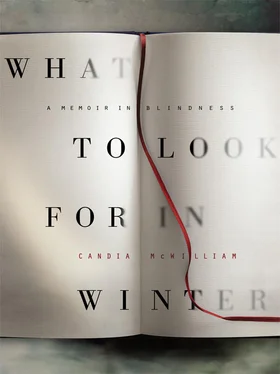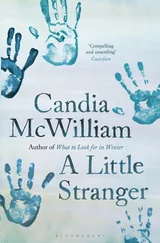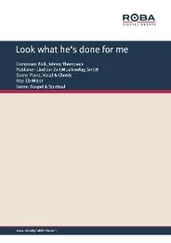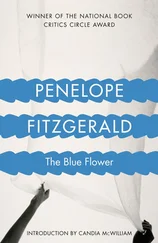It’s not a secret that Vogue in those days ran on the labour of gently reared girls with private income, so that, for example, it was possible to find Lady Jane Spencer in the Beauty Room, and a descendant of Pushkin and the Wernher mining family, who later became a virtuosic mime artist, in the administration department. It would be unfair on Condé Nast though to ascribe my defection simply to my not being able to afford to work there.
Addicted to magazines as I am, I could not bear seeing behind their pages. I was like the opposite of a conjuror who likes to make magic from his practical skills. I could not bear the bright light shed upon my dreams. I had grown ill within the very breeding ground of consumption.
There was a bad period of hiding and pretending to be going to work, but the 50ps ran out and even when I had pawned my mother’s jewellery box for eight pounds (it was ebony, silver, mother-of-pearl, had crystal phials and a box of mercury powder for wigs, was made in the eighteenth century and contained its bill of sale, handwritten; she had given it to me for my fifth Easter), even when I’d saved up cider bottles and taken them back to the off-licence to redeem the 10p on each one, even then I knew that the only sort of work I could do, with any honesty, was writing. I had dropped a stitch somewhere by not applying for a doctorate, by lazily, unthinkingly, slipping into my prize job at Vogue.
Happy outcomes from my time at Vogue were friendships. Two friends I had made just before Vogue , one the little sister of Alexandra Shulman, who went on to edit Vogue. Alex and I were friends but I was, I felt, too impractical for her; I remain devoted to her and impressed and rather intimidated by her. Her little sister Nicola became a friend of the heart. Beauty is an impossible characteristic. Women want to have affairs with men who have had affairs with beauties, as if it will up the octane of their own looks. Nicky is shrewd and innocent, a real writer, scholarly and kind. It just so happens that the capsule her soul is contained in is a beautiful one.
At school at St Paul’s with Alexandra were the famously terrifying Fraser girls. The Frasers lived in Camden Hill Square. Notoriously, a neighbour of theirs had been killed by an IRA bomb intended for their father Hugh Fraser. Hugh Fraser was an example to me of everything a man might be. He looked like an eagle, he took mustard on his smoked salmon, he sang to his dog, he was upright, noble and all the Alan Breck virtues.
Flora Fraser possesses that smile to be found on some ancient sculptures, referred to as the archaic smile. It is the sad smile, the smile of an all-knowing Clio, muse of history. When first we met, Flora was reading Greats at Wadham and I was at Girton — no, it goes further back. I remember a sixteenth birthday party at Camden Hill Square and precisely what I wore, footless tights in strong pink and a knitted transparent pink lamé nightgown together with my, at the time, candy pink and hot pink striped hair all twisted up in a bun. Flora married very young her peer in intellect and in love. She was still at university. Her husband Robert Powell-Jones had read Russian and Chinese. His intelligent beauty shook with the tension and pitch of his mind. He danced on a high wire in that head.
They learned Turkish and Italian together, living on love and carrot sticks. Their daughter Stella was born to them one glorious May the 15th. But Robert carried in him what I carry too and he did not escape it. They tried everything but in the end he died before Christmas 1997. He had just completed his translation of Pushkin’s The Bronze Horseman . It might almost be as though Robert’s own subtlety, that was compromised by the harm drink did him, has after death joined itself in posthumous conjunction with Flora’s own subtlety. I could not have managed my life without this strong friendship that she has thrown to me when I thought there was no one in the sea but sharks and minnows.
So somehow I ended up after Vogue working first in a joke shop and then for a decorous old-style pornographer on Old Street, which was not the fashionable area it is now. In addition to packing tired copies of Fanny Hill and trying to get off the ground a rather interesting-sounding book about the Blunt family and equine blood-lines, I ended up, thinner yet this time, and attired in white, but in rather the same situation I had found myself in at the very beginning of Vogue , ineptly laying out a magazine with scalpel, cardboard and Cow Gum, though now in a small room in Old Street with one man instead of Vogue House with all its varied and often congenial wildlife.
This time it was the AA membership magazine that I was laying out badly, the AA being a large organisation that comes to the rescue of motorists in distress and whose headquarters are in Basingstoke. My new boss, the Old Street one, who regularly paid me in cash on a Friday morning and borrowed much of it back on Friday afternoons, took me on a trip to Basingstoke. We underwent a lunch with the bigwigs from the Automobile Association in their local hostelry. Mention was made of my having worked on Vogue. This to demonstrate experience with layout. I deprecated loudly but no one was reading my body language. The AA headquarters was, at that time, one of the tallest buildings in Basingstoke and from its boardroom might be viewed the Wiggins Teape building, known locally as the Hanging Gardens of Basingstoke. I laughed, then saw that my reaction was not the right one and sucked in the laugh.
I knew that I was acting and that I shouldn’t have been given the part, should never have auditioned for it. Anyone in their right mind would have sent me away as had the kind lady at Konrad Furs in South Molton Street, who simply said, when I went in there and asked for a job, ‘Do you really think you’re suitable, dear? Aren’t you a bit over-qualified? How much do you know about selecting pelts?’
Out beyond the edges of Basingstoke, a town that grew almost as one watched it, were roundabouts, aspin with vehicles, their owners very likely members themselves of the AA. Our presentation having been accepted, we were appointed designers to the Automobile Association of their monthly magazine. Going down in the lift, my boss said, ‘Seems a pity all that land being built on around Basingstoke. Still, you’ve got to put people somewhere and it’s as good a place as any.’ And so I got the layout job for the AA. The prefiguring of my being practically laid out before I got to the other kind of AA is not too neat to be true.
I stayed with this job for about a year, my ineptitude in most areas outstripped by that of my boss, over whom there was a Mr Big of whose visits I lived in fear. In another part of the building, doing I do not know what, worked a tired-looking man named Mr Bunce, whose assistant Nanette came in one day with what looked very like a broken jaw. The one solid benefit of the job was that opposite the office there was that beautiful repository for the dead, Bunhill Fields, where I walked when I could, reading the stones.
But by now I was learning to take a certain amount of care of myself. Our lugubrious next-door neighbour in Warwick Avenue, Tobias Rodgers, a dealer in Spanish incunabula, threw a tablecloth over his ping-pong table and had a party. At this party I enjoyed a conversation about Hogarth, about building wooden ships, about the deliciousness of non-fizzy Champagne, about how weird it was to be the only Jewish family in your small town in New England. I had met the man who was to stop me going out dressed inappropriately, make me eat more sensibly, and show me, in the Cosy Fish and Supper Bar in Whitecross Street, opposite my workplace in Old Street, how to eat a gherkin properly. For a start it was called a pickle. His band was called The Forbidden and their number ‘Ain’t Doin’ Nothin” was number forty-three in the New Wave charts. His nom de guerre was Jet Bronx. He is now more ordinarily known as Loyd Grossman.
Читать дальше











